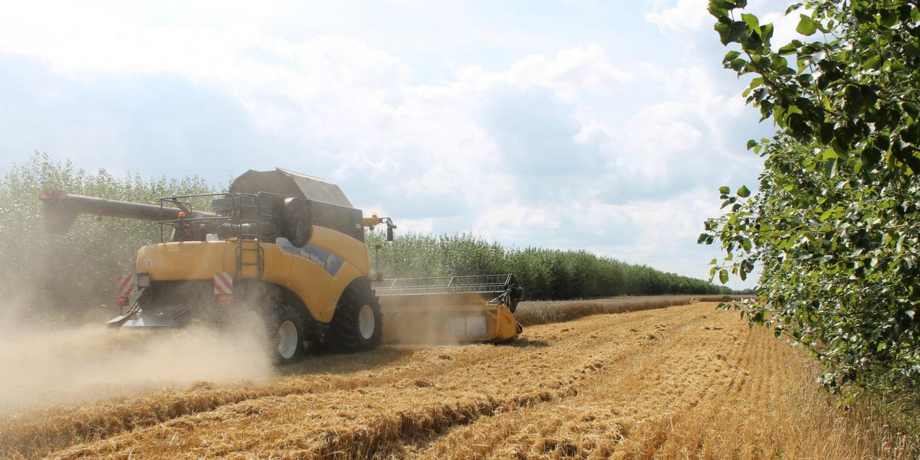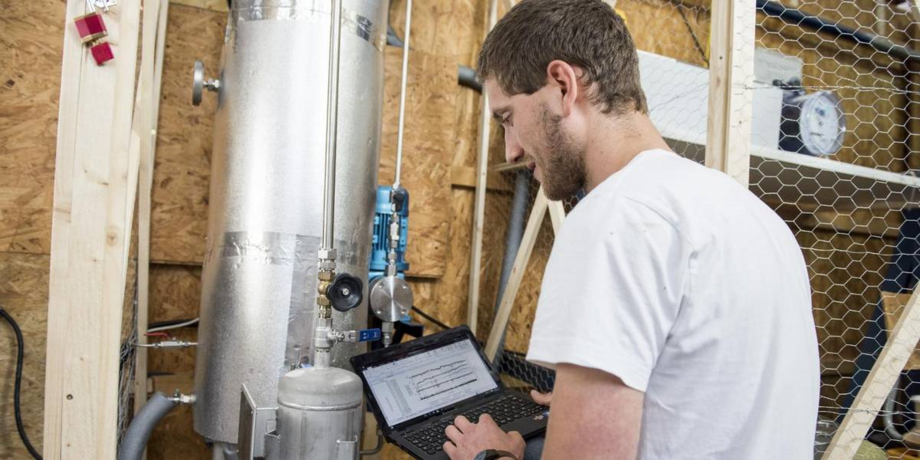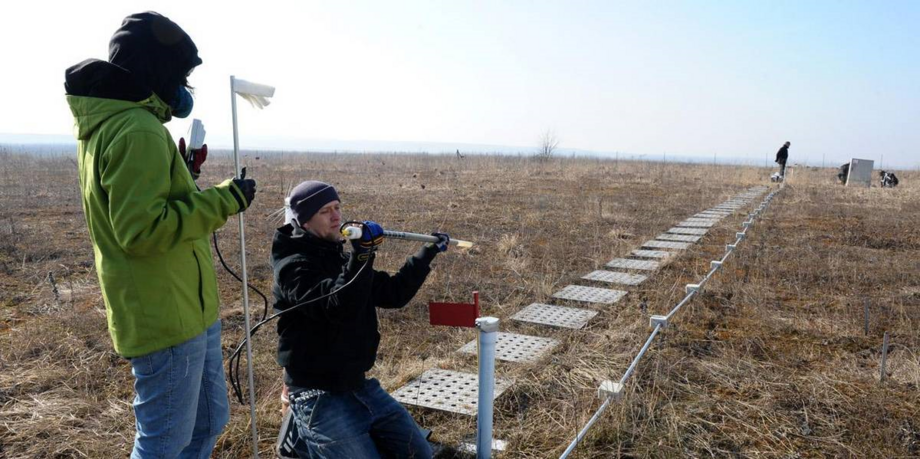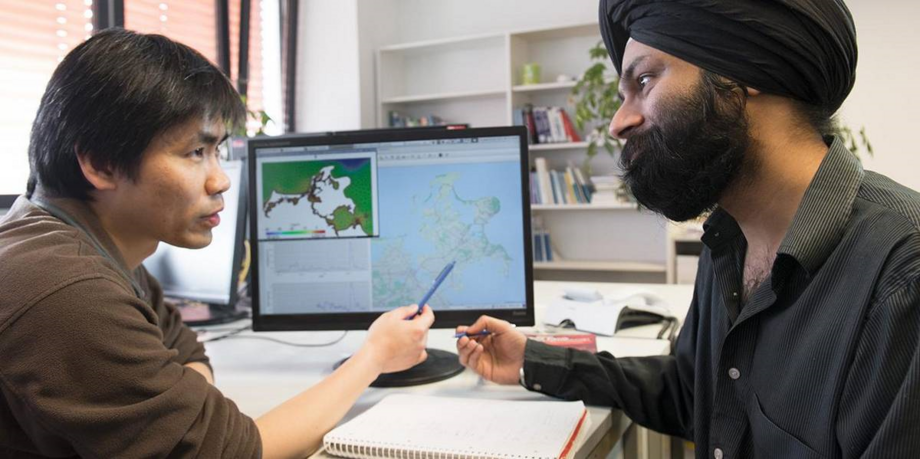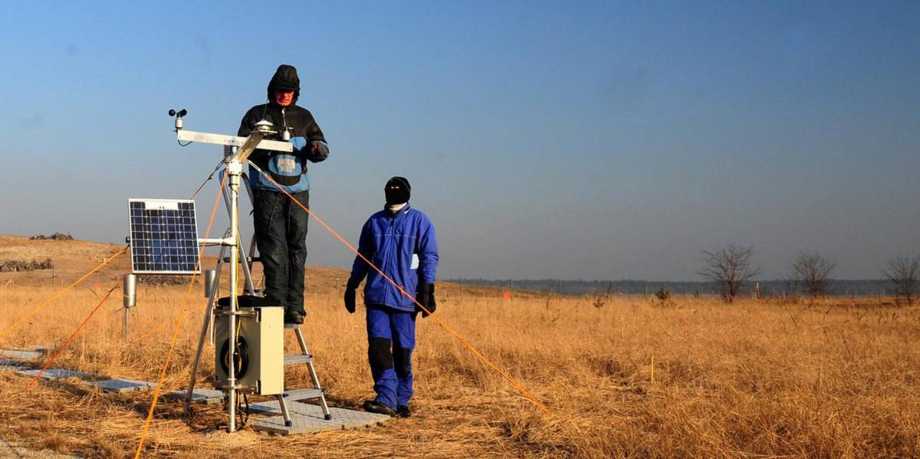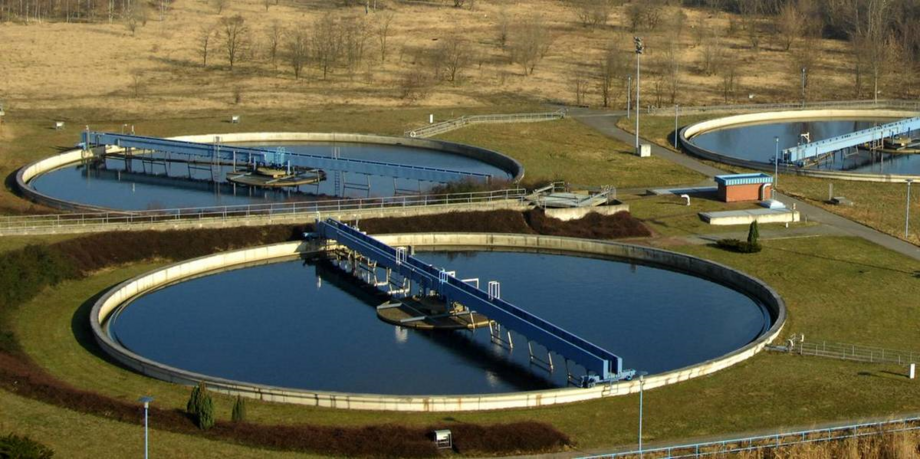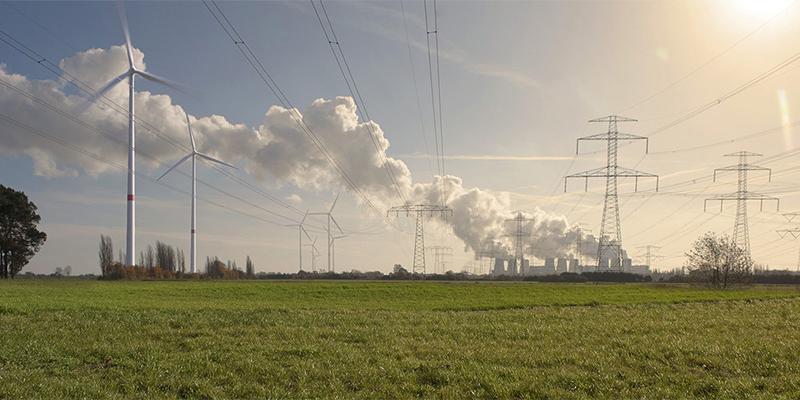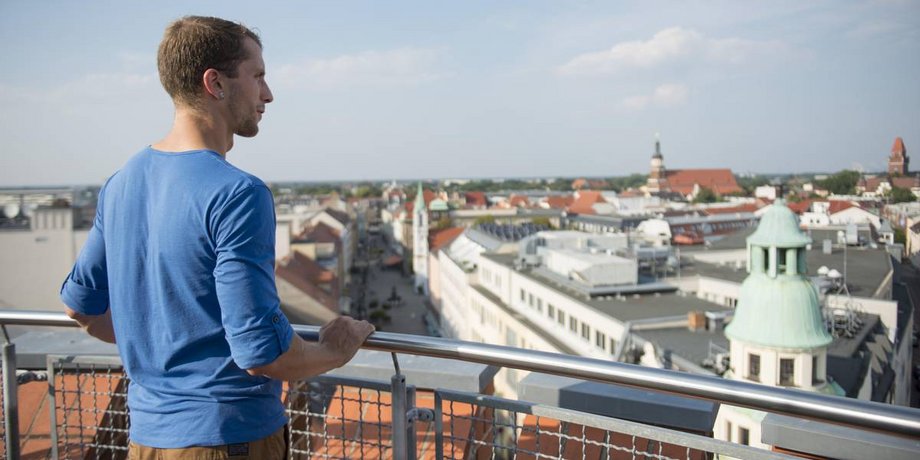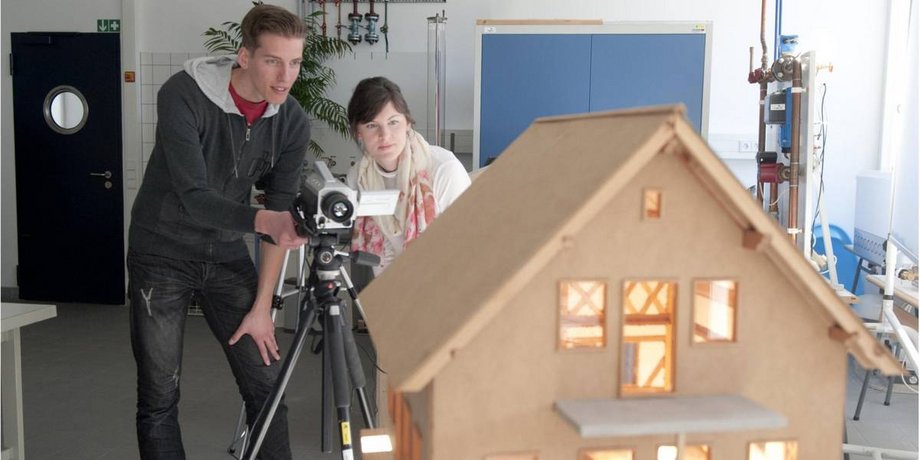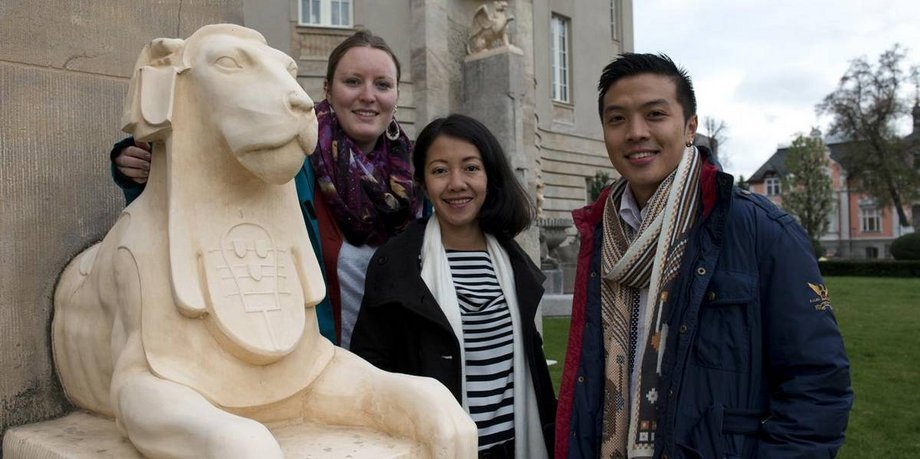Sustainable study programs at the BTU Cottbus-Senftenberg
In its environmental guidelines, the BTU, as an educational institution for future decision-makers in society, has acknowledged its special responsibility towards present and future generations and identified the development of knowledge and competencies in the environmental and sustainability fields as an essential element for the promotion and development of sustainable lifestyles and value systems.
The sustainability-oriented degree programs at the BTU are listed below. If more information about the program is needed, a click will take you directly to the program website.
Environmental and Resource Management (B.Sc.)
The bachelor's degree program in Environmental and Resource Management provides an integrated approach to current environmental issues and combines the knowledge of several closely related fields. Courses are offered on basic technical topics as well as in natural, social and economic sciences.
Land Use and Water Management (B.Sc.)
Land use refers to any human occupation of the landscape. Water management includes all anthropogenic interventions in the landscape water balance and is closely coupled with land use. In the Bachelor of Land Use and Water Management, students gain an understanding of the effects of these interventions, as well as how they interact with each other.
Environmental Engineering (B.Sc.)
Growing needs due to increasing population, high energy and resource consumption, climate change and disruption of ecosystems - these are just some of the problems that humanity will have to solve in the coming decades. At the same time, the solutions should be sustainable. In the Bachelor of Environmental Engineering, students learn to deal with exactly these challenges.
Environmental and Resource Management (M.Sc.)
The program serves to broaden and deepen technical knowledge and leadership skills in the focus area of integrative environmental and resource protection. Graduates are enabled to evaluate and design technological, economic and infrastructural processes under the objective of sustainable production, planning and material flow management.
Euro Hydroinformatics and Water Management (M.Sc.)
The management of aquatic resources is a major challenge from the point of view of sustainable development. The aim of the Master course is to train future scientists and qualified engineers as decision makers in modelling and management of projects concerning water technologies and environmental issues and the use of modern information and communication technologies Hydroinformatics.
Land Use and Water Management (M.Sc.)
Graduates should be able to deal analytically and practically with areas of conflict arising from changing demands on land use and water management. Interdisciplinary competencies as well as problem solving skills for rural areas are taught.
Environmental Engineering (M.Sc.)
As an interdisciplinary, integrative and open engineering program, it provides students with a sustainable approach to the conservation and development of human living and production spaces. The contents of the course are oriented towards various specializations for securing living conditions in settlement areas by technical means.
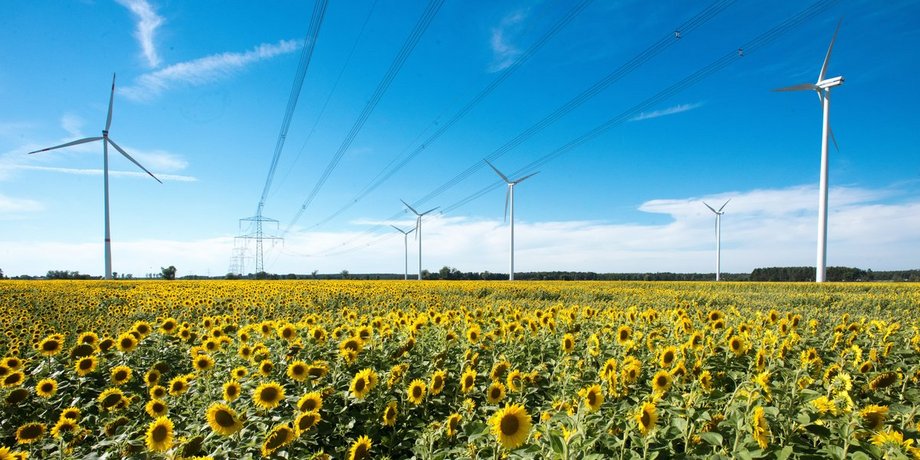
Energy Technology and Economics (B.Sc.)
The world, and with it Lusatia, is changing towards climate-neutral technologies. This applies in particular to energy technology and economics. In the coming decades, young people will be sought in Lusatia who will accompany the energy transition and the structural change that has been initiated with it. Studying at the BTU in the course of Energy Technology and Economics creates the professional qualifications to support structural change in Lusatia and beyond.
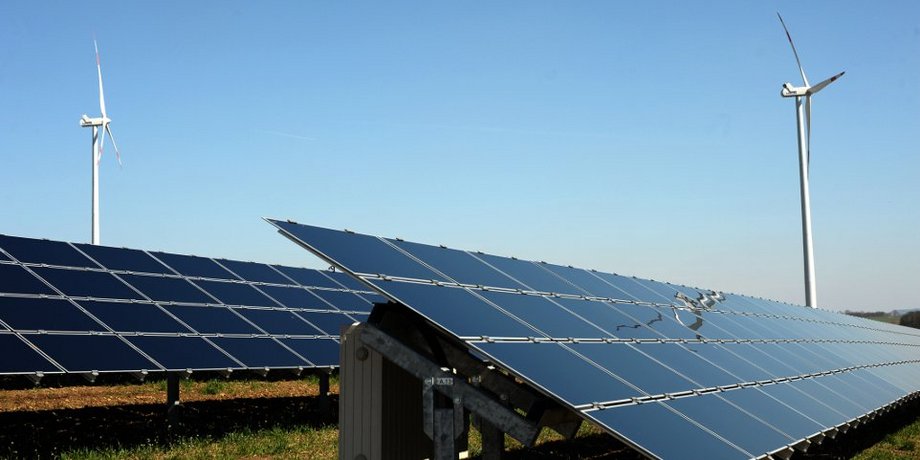
Energy Technology and Economics (M.Sc.)
In the coming decades, young people will be sought in Lusatia who will accompany the energy transition and the structural change that has been initiated with it. Studying at the BTU in the course of Energy Technology and Economics creates the professional qualifications to support structural change in Lusatia and beyond. The requirement for immatriculation is a bachelor's degree in energy technology, energy economics or electrical engineering.
Power Engineering (M.Sc.)
The international master’s programme Power Engineering aims to convey knowledge of sustainable energy supply in the European context. The main focus of teaching centres on the concept of safe, affordable and environmentally friendly energy generation as one of the most urgent global challenges of the 21st century.
Urban and Regional Planning (B.Sc.)
The study of urban design and planning deals with the sustainable and future-oriented development of cities and communities. The special feature of the urban planning program at the BTU is the close integration with the architecture program, which is unique in Germany in this way, so that particular emphasis is placed on the "urban planning" module.
Climate-adapted Construction and Operation (M.Sc.)
The program imparts knowledge about the construction of energy-efficient and resource-saving buildings and settlement structures as well as efficient plant operation. Teaching covers aspects of building design, the building materials used and the technical building equipment, in particular also the use of renewable energies. A special feature of the program is its interdisciplinary approach.
World Heritage Studies (M.A.)
Founded in 1999, the WHS program at the BTU Cottbus-Senftenberg is the first program in the world to design its curriculum based on the UNESCO Convention Concerning the Protection of the World Cultural and Natural Heritage. The program recognizes that heritage can and should be protected from a variety of perspectives and in a contemporary context. To this end, the program emphasizes critical consideration of current challenges, such as demographic changes, environmental fragility, and economic inequalities.


